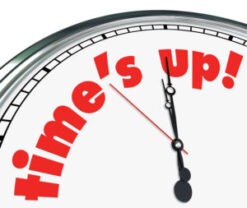
Under the Statute of Limitations most unsecured debt becomes statute barred after 6 years. However some debts can be enforced after this.
Jump to article contents:
- When does debt become statute barred?
- Doyle v PRA January 2019
- Do any debts remain enforceable after 6 years?
Need advice about Debt? Give us a call on 0800 077 6180 or complete the form below to speak to one of our experts
If you live in Scotland the rules about when debt becomes statute barred are different.
When does Debt become Statute Barred?
Generally speaking an unsecured debt becomes statute barred and unenforceable after 6 years if the following rules can be applied:
1. The creditor has not already obtained a CCJ against you; and
2. You have not made a payment towards the debt during the last six years; and
3. The creditor had a cause of action against you more than 6 years ago; and
4. You have not written to the creditor admitting you owe the debt during the last six years.
It is not just bank debts such as credit cards and loans what become unenforceable. It is also the case for other debts such as council tax and rent arrears.
A Council should not be able to apply for a Liability Order against you after the debt is statute barred. However if such an order is issued within the 6 years the debt can never then become statute barred.
Doyle v PRA January 2019
The case of Doyle v PRA Group was heard by the Court of Appeal in January 2019. It has given additional clarity on when consumer credit debts such as credit cards and loans become statute barred.
The case was about when the 6 years actually starts. The Court ruled that the time begins not from the date of the last payment but from the date the creditor issued a default notice.
In effect this is the date from which the creditor has a cause of action against the debtor. In other words the date from which they can legally take court action to enforce the debt.
It has been suggested that a creditor could now stop a debt from becoming statute barred by delaying the issue of a default notice. There is no evidence yet of this.
Do any debts Remain Enforceable after 6 Years?
There are some types of debts which do not become statute barred at the 6th year anniversary:
CCJ Debt
Once a CCJ has been issued technically the associated debt can never then become statute barred. However in reality a creditor can only take further action after 6 years if further permission is granted by the Court.
Mortgage or Secured Loan Shortfall:
These debts only become statute barred after 12 years.
Benefit over payments:
Benefits overpayments are statute barred after 6 years. However they can still be recovered after this by withholding future benefit entitlements. This is because no court action is required to do this.
Income Tax and VAT:
There is no time limit for recovery of HMRC debts such as tax or VAT owed and any related interest. As such these debts cannot become unenforceable.
CSA arrears
Generally speaking for CSA debts incurred after July 2006 the Statute of Limitations does not apply.
National Insurance is not classed as a tax and is therefore subject to a six year limitation period.
Arrange a call with a Debt Management Expert
Privacy Policy
Your information will be held in strictest confidence and used to contact you by our internal team only. We will never share your details with any third party without your permission.


